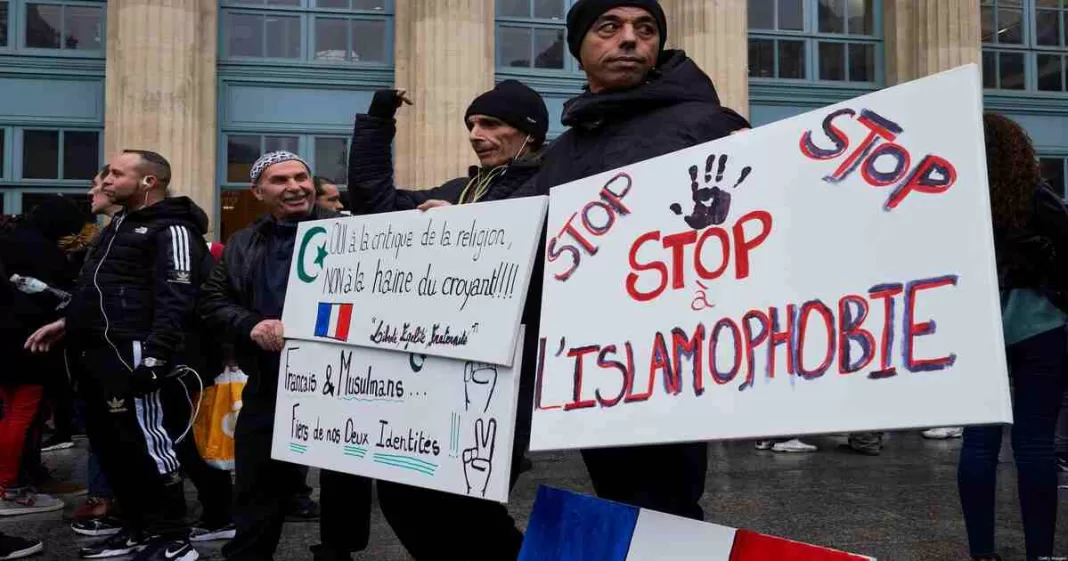Europe has long been regarded as a diverse continent, boasting a rich tapestry of cultures and religions. However, recent developments have raised significant concerns regarding the rise of Islamophobia across several European countries. At a major security and human rights conference in Poland, Muslim civil society groups from Austria, France, Sweden, Spain, and the Netherlands came together to voice their apprehensions about the alarming climate of “state-sponsored” Islamophobia they are experiencing. A particularly distressing issue that emerged from their addresses was the unjust blacklisting of key figures from the Muslim community.
Schengen Blacklist
One of the striking incidents that came to light during the conference was the case of Muhammad Rabbani, Cage’s international director, who was banned from entering Poland due to his inclusion on the Schengen Information System blacklist. This system allows Schengen member-states to place individuals on a no-entry list to the Schengen zone. This episode underscores the broader pattern where prominent figures in the Muslim community find themselves unfairly placed on blacklists.
Read More: Europe’s richest man investigated over ‘Russian ties’
Systematic Targeting
Adani el-Kanfoudi, spokesperson for Muslim Rights Watch in the Netherlands, asserted that the unjust blacklisting of Muslim individuals is just one aspect of a more extensive and disturbing pattern. He noted that many Dutch Muslims had approached his organization, claiming they had been wrongly placed on terror lists by Dutch authorities. This mislabeling has severe repercussions, including the loss of livelihoods, banking and travel restrictions, and being treated as “second-class citizens.” Such systematic targeting not only infringes upon individual liberties but also sows fear and division within Muslim communities.
Sweden’s Quran Burnings
Arman Jeziz, representing Insan, revealed the burning of a mosque in Sweden while addressing the conference. He questioned the trajectory Europe is taking when mosques and religious texts like the Quran are subjected to destruction, Muslim attire is restricted, and Muslims are subjected to extensive surveillance. Jeziz’s poignant question raised concerns about the future of Europe’s Muslim population.
Austria’s Operation Luxor
Nehal Abdullah, Cage’s researcher in Austria, condemned the Austrian government’s Operation Luxor, which saw the police raid the homes of 70 Muslim households and the arrest of 30 Muslim academics in 2020. Notably, none of those affected by the raids were charged with any offenses, and recent high court rulings deemed the raids unlawful and politically motivated. Abdullah also criticized Austria’s establishment of the Documentation Centre of Political Islam, revealing its links to the United Arab Emirates and its campaign against the Muslim Brotherhood.
France’s Abaya Ban and Police Killings
Campaigners from France also voiced their concerns at the OSCE session. They highlighted the ban on the abaya in schools and recent police killings of young North African men as sources of heightened tensions. Elias d’Imzalene, from Perspective Musulmanes, expressed solidarity with young Muslim girls who continue to fight for their religious freedom despite the obstacles they face.
French Response
While the French representative at the OSCE session discussed France’s support for the European Commission against Racism and Intolerance, they did not directly address concerns surrounding Islamophobia in France. They emphasized the principle of secularism, or “L’aicite,” as a framework for religious neutrality of the state. However, critics argue that these policies may inadvertently contribute to the marginalization of Muslim communities.
Read More: Under Surveillance: European Spyware Firms Blacklisted by US
The voices of Muslim civil society groups at the OSCE conference serve as a vital reminder that Islamophobia is on the rise in Europe, affecting individuals and communities in various ways. The issue of blacklisting, as exemplified by the case of Muhammad Rabbani, underscores the urgency of addressing this disturbing trend. As Europe navigates its cultural diversity, it must confront Islamophobia head-on and work towards fostering inclusivity, respect, and mutual understanding among all its citizens, regardless of their religious beliefs.














